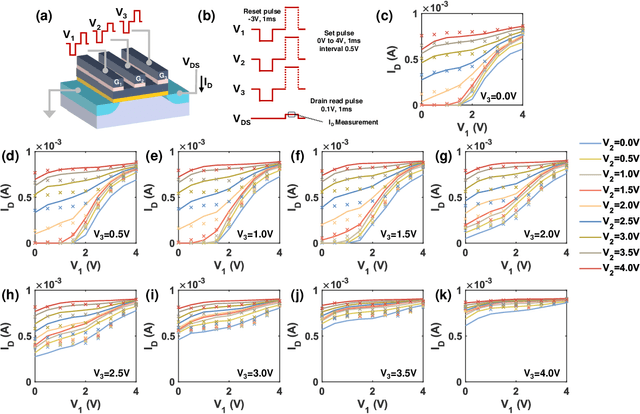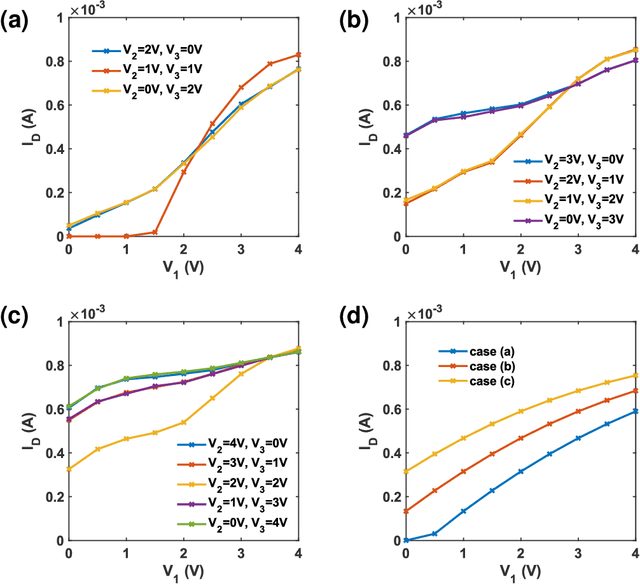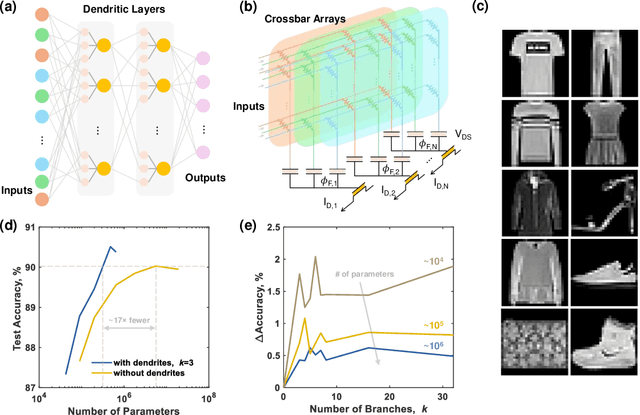Dendritic Computing with Multi-Gate Ferroelectric Field-Effect Transistors
Paper and Code
May 02, 2025



Although inspired by neuronal systems in the brain, artificial neural networks generally employ point-neurons, which offer far less computational complexity than their biological counterparts. Neurons have dendritic arbors that connect to different sets of synapses and offer local non-linear accumulation - playing a pivotal role in processing and learning. Inspired by this, we propose a novel neuron design based on a multi-gate ferroelectric field-effect transistor that mimics dendrites. It leverages ferroelectric nonlinearity for local computations within dendritic branches, while utilizing the transistor action to generate the final neuronal output. The branched architecture paves the way for utilizing smaller crossbar arrays in hardware integration, leading to greater efficiency. Using an experimentally calibrated device-circuit-algorithm co-simulation framework, we demonstrate that networks incorporating our dendritic neurons achieve superior performance in comparison to much larger networks without dendrites ($\sim$17$\times$ fewer trainable weight parameters). These findings suggest that dendritic hardware can significantly improve computational efficiency, and learning capacity of neuromorphic systems optimized for edge applications.
 Add to Chrome
Add to Chrome Add to Firefox
Add to Firefox Add to Edge
Add to Edge